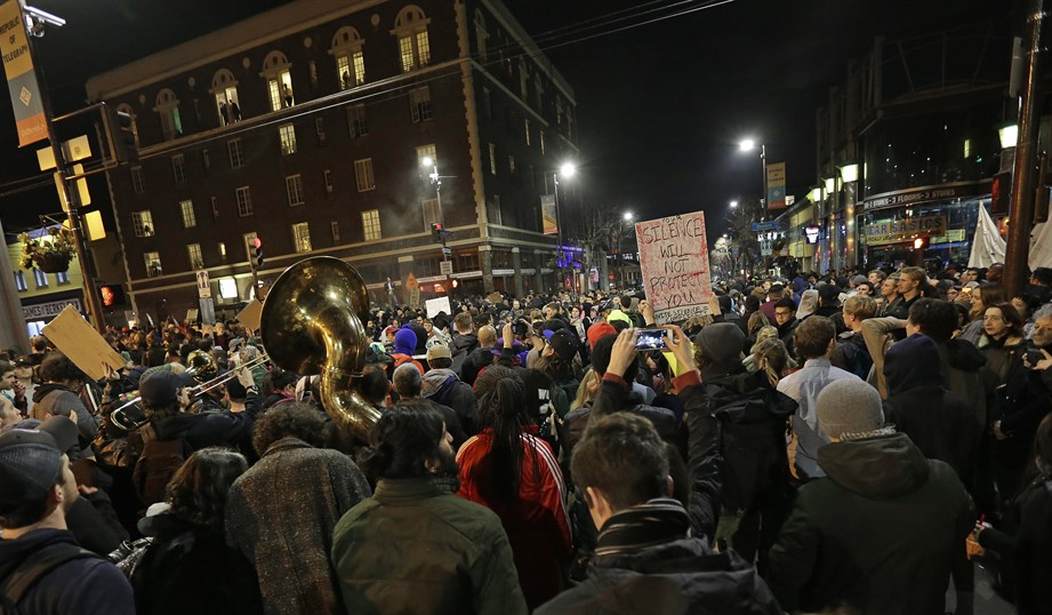This is why we fear that the First Amendment protections for free speech may not survive Gen Z's rise to power in the next decade.
According to the Foundation for Individual Rights and Expression (FIRE), a record 164 speakers and events were targeted by campaigns for disruption or cancelation on college campuses in 2024. More than half the speakers targeted for cancelation were related to the Gaza War. This is slightly higher than the 154 attempts to cancel events in 2023, and a significant increase from 2022 (81) and 2021 (56).
Some of the canceled events were related to pro-Palestinian speakers. However, the majority of cancelations relating to the Gaza War were from pro-Israel speakers.
FIRE refers to these cancelations and disruptions as "deplatforming." They have created a Campus Deplatforming Database. "In addition to tracking attempts to disinvite speakers from campus, the updated database now includes attempts to cancel performances, take down art exhibits, and prevent the screening of films," according to FIRE's website.
In January, Indiana University canceled an exhibition from a Palestinian-American artist over her pro-Palestentian social media posts. In April, Rep. Jamie Raskin (D–Md.) was shouted down during a physics department lecture at the University of Maryland. In the spring, speakers ranging from United Nations Ambassador Linda Thomas-Greenfield to CNN's Michael Smerconish had their invitations to deliver commencement speeches revoked following student or community outrage. In November, a symposium on the Israel-Palestine conflict including Judith Butler was forced off the campus of the University of Florida after administrators objected to the event.
Palestinian students have no idea of the American conception of freedom of expression. Few nations fully understand what a core American belief in freedom of speech truly is.
That concept is disappearing before our eyes, as students are poisoned by the radical left to believe that no one can ever offend or hurt the feelings of anyone else. "You're free to speak your mind as long as you agree with us" has been pounded into the heads of America's youth for three generations, and it appears that finally, it's beginning to take hold.
FIRE's attempt to track and publicize these deplatforming efforts gives us a better idea of how serious the problem is. They were extremely thorough in their research.
From 1998 to Feb. 5 of this year, we recorded 1,367 deplatforming attempts in the Campus Deplatforming database. Roughly three-fifths of the recorded deplatforming attempts (809, or 59%) occurred from 2014 to the present, and almost a quarter (330, or 24%) occurred from 2020 to the present. Last year alone, we recorded a record-setting 137 deplatforming attempts, which amounts to roughly 10% of all recorded deplatforming attempts since 1998.
Overall, 532, or 39%, of the 1,367 recorded deplatforming attempts succeeded. This includes 12 postponements of an event; 21 removals of artwork; 43 cancellations of art exhibits; performances, or film screenings; and 46 withdrawn, 55 rejected, and 233 rescinded speaking invitations. It also includes 122 substantial event disruptions: incidents when either a heckler’s veto occurred or when the student government and/or administrators made it exceedingly difficult for event organizers to hold the event.
One way to fight deplatforming is to urge school administrations not to succumb to pressure and ban speakers and events that may touch on controversial subjects, or in the case of conservative speakers, opposition to other ideas. Most college presidents, for the most part, appear to be cowards who either freeze in the face of disruptions, or go along to get along and ban the speakers.
Then there are the administrations who actually take the side of the protesters and actively work to squelch free speech. The only remedy there is to get the board of regents to fire them and put someone who understands freedom of speech in their place.










Join the conversation as a VIP Member